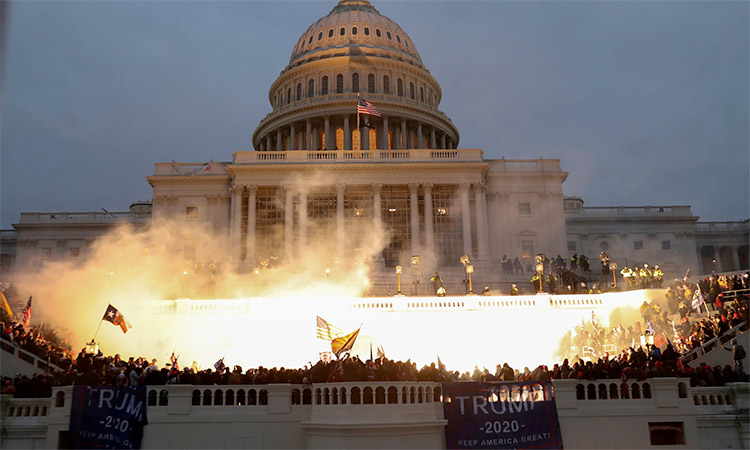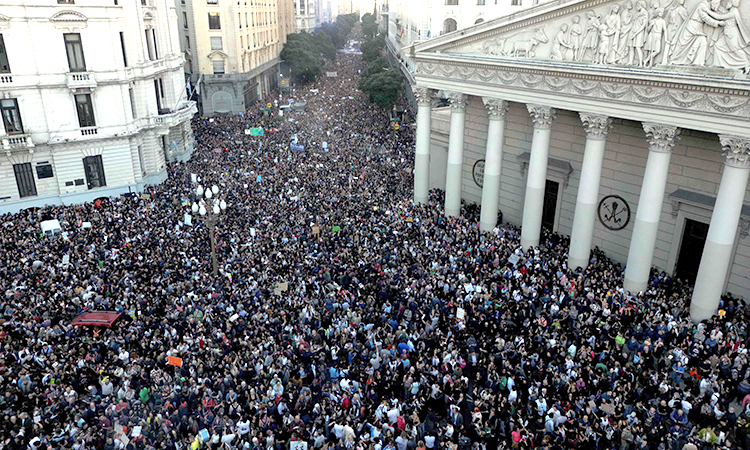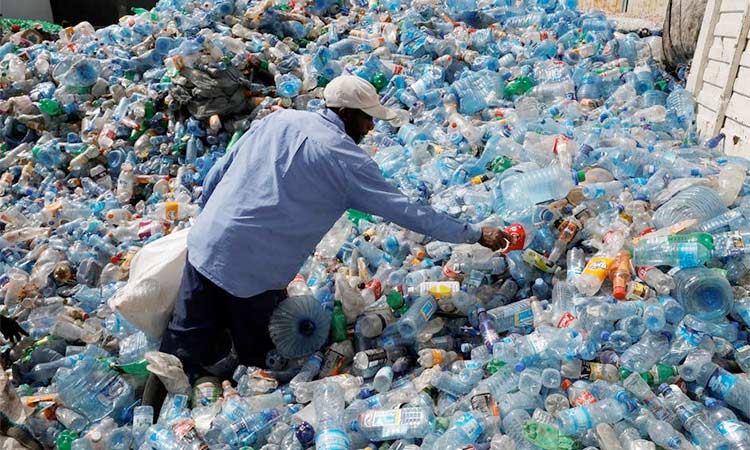What next for America after Capitol mayhem

The Capitol siege has left the American political and civil society with several intriguing questions.
Naomi Ishisaka, Tribune News Service
The images speak for themselves.
There was Korean American US Rep. Andy Kim, on the floor of the Capitol rotunda after midnight, picking up the pro-Trump detritus and trash left behind by a mob set to overturn the results of a fair election.
Earlier that day, Black US Rep. Lisa Blunt Rochester, having evacuated the House chamber, sheltered with colleagues and feared a superspreader epilogue to the attack if other Congress members and staff did not put on masks. She went around the room trying to hand out masks and was not only refused, but laughed at in a now-viral video.
A Black Capitol Police officer used himself as bait to draw a mob of mostly white rioters away from the Senate chamber entrance and protect lawmakers. Now, some members of Congress want to award Goodman with the Congressional Gold Medal for his heroism, but Goodman’s friends say he is wary of the limelight and fears being targeted by right-wing attacks.
And in the last image, several Black custodians clean up the US Capitol building in the wake of the riot.
These snapshots tell an all too familiar story: People of colour, who were least responsible for the damage, were left to literally and figuratively clean up a mess made by unchecked nationalist violence. It’s gutting to see people who are themselves threatened and targeted by racism having to do the dirty work of picking up garbage and begging our supposed leaders to protect themselves and others by simply wearing a mask.
Monday was the day we honoured the life of the Rev. Dr. Martin Luther King Jr. It marked a time of reflection and taking stock, and figuring out, as King put it, “where do we go from here?”
This year, we have much to reflect upon. Our country is deeply divided, not able even to agree on fundamental facts or truths. Is COVID-19 real? Was the election stolen? These questions have simple answers, but a significant percentage of the country can’t even agree on them. In a recent Vox poll, 72% of Republicans still questioned the results of our free and fair election.
Some readers continue to tell me each week that simply talking about racism is the real problem we are facing and that to even discuss racism and inequality is divisive. After my column on the Capitol riot last week, some readers told me I was deluded and that the mob was not actually made of supporters of the 45th president but antifa in disguise, which was not true. (Never mind that the rioters did not attempt to hide their identities and some even livestreamed their own actions and were easily identified as longtime supporters of the outgoing president.)
Many other readers told me that those critical of the Capitol mob were hypocrites for supporting racial justice protesters as they “looted and burned down cities” with impunity and abandon over the summer. But to support this popular narrative in right-wing media would be to traffic in false equivalencies, deflections and distractions. Cities were not burned down and there was not impunity, there was the opposite. According to the Guardian newspaper, since April 2020, police in the US were more than three times more likely to use force against left-wing protesters than right-wing, even when the protests were all peaceful.
So where do we go from here?
This week marks the opening of a new chapter in our nation and world.
On Wednesday, the Biden/Harris administration will take its place in the White House after four years of chaos, a catastrophic pandemic that has claimed nearly 400,000 US lives, racial justice uprisings and a deadly insurrection.
How can a greater number of us shoulder more responsibility for repairing the damage? In 1967, Dr. King wrote in his book “Where Do We Go From Here: Chaos or Community?” that it was time for white people to step up and clean up the mess of racist beliefs and actions.
“Whites, it must frankly be said, are not putting in a similar mass effort to re-educate themselves out of their racial ignorance,” King wrote. “It is an aspect of their sense of superiority that the white people of America believe they have so little to learn. ... Loose and easy language about equality, resonant resolutions about brotherhood fall pleasantly on the ear, but for the Negro there is a credibility gap he cannot overlook. He remembers that with each modest advance the white population promptly raises the argument that the Negro has come far enough. Each step forward accents an ever-present tendency to backlash.”



